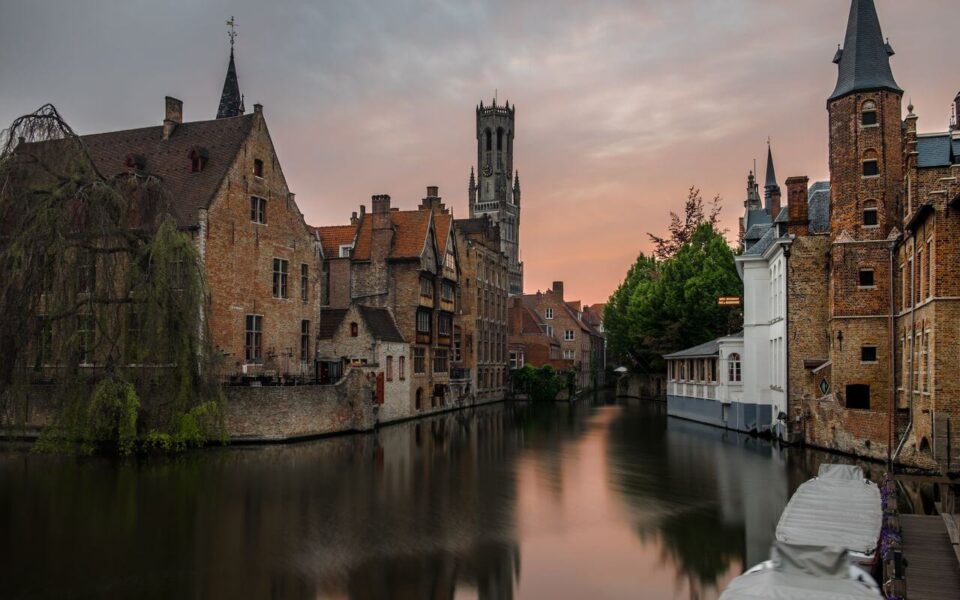
Brussels Multilingual: The Capital's Language Identity

Brussels Multilingual: The Capital’s Language Identity
Ok, let’s make it clear right from the start: there’s nfluento ‘Belgian’ language. Neither is there_a_ “Belgium language”. Why? BecauseBelgium has not one, but three official languages:
- Dutch (Flemish);
- French;
- German.
Most people already know that Dutch and French are spoken in Belgium, but German is not as popular. While Dutch and French are spoken by almost 100% of Belgians,German only counts for roughly 1% of the entire population. However, in addition to these three official languages, some Belgians also speak Luxembourgish, Limburgish, Walloon and many others. The language locals speak depends a lot on the region you’re in. Let’s take a closer look at the distribution of languages in Belgium.
Which languages are spoken in Belgium?
Belgium, officially “the Kingdom of Belgium”, is a country in Northwestern Europe bordered by the Netherlands , Germany, Luxembourg, France, and the North Sea. Now one thing we know for sure: Belgium certainly has many neighbors and most of them influenced which languages are spoken here.
Article 4 of the Belgian constitution divides the country into three communities/regions that are based on four language areas. These linguistic areas are: the French-speaking area, the Dutch-speaking area, the bilingual (French and Dutch) area of Brussels Capital, and the German-speaking area.
1. Dutch (Flemish)
The Dutch-speaking region of Belgium, known as Flanders, is located in the northern part of the country. Flanders includes the cities of Antwerp, Bruges, and Ghent.
Though the standard form of Dutch used here is almost identical to that spoken in the Netherlands, it is often called “Belgian-Dutch” or, colloquially, “Flemish”.About 60% of the population of Belgium speaks Flemish. That’s roughly 6.5 million people.
If you already know how to speak Dutch, then you’ll have no problem communicating with people in Belgium. If not, don’t worry! There’s always French or even German.
2. French
French is the primary language spoken in the southern region of Belgium, which is known as Wallonia. This area includes the cities of Brussels, Liege, and Namur.
Spoken by about 40% of the population, Belgian-French is not very different from the “standard French” in France. Thus, if you want to mash two potatoes with one fork, learning French can come in handy in both neighboring countries.
Even if you don’t speak French fluently, being able to say a few phrases will go a long way in making locals feel more comfortable around you. Plus, it shows that you’re interested in their culture and willing to make a little effort to truly connect with them.
3. German
German is spoken in a small area located in eastern Belgium along the border with Germany. This region is known as the German-speaking community of Belgium and includes about 73,000 people. That’s roughly 1% of the entire population of Belgium.
Considering this territory only joined Belgium after World War I, the German spoken here is not very different from “standard German”. Therefore, if you already speak German , you should have no problem communicating with the locals.
Learn the languages of Belgium with Mondly 👇
4. Luxembourgish, Limburgish and other minority languages
If you thought Flemish, French and German were the only languages spoken in Belgium, you’re in for a treat. In the Belgian province of Luxembourg, which – unsurprisingly – borders the country of Luxembourg, you can also heara fourth language: Luxembourgish.
Spoken in the Arelerland district, Luxembourgish is not recognized at a national level, but the French Community of Belgium acknowledges it as a minority language.
In addition to this, Belgium is also home to several other Germanic and Romance dialects or varieties:
- Germanic dialects or varieties: Brabantian and East Flemish (both regarded as varieties of Dutch rather than separate Flemish languages), Limburgish, West Flemish, Low Dietsch;
- Romance dialects or varieties: Walloon, Picard, Champenois, and Lorrain (these are all varieties related to French that have been recognized by the French Community as separate languages).
As you can see, the Kingdom of Belgium is a melting pot of different languages.

Can you get by with English in Belgium?
Yes and no. It all depends on which region you are visiting. People working in hospitality and other such “social” jobs will normally speak English – especially in the more touristy areas.
However, it seems that, similar to Parisians, locals in Belgium are reluctant to talk to tourists in English. Especially if the visitors don’t attempt to talk in French, Dutch or German before resorting to English.
It’s true that all locals appreciate the extra effort you put into learning a few words in their native language. But Belgians tend to appreciate this gesture more than most. So, if you want to make friends, learning the basics of at least Dutch and French before your trip to Belgium can go a long way.
One last thing: be careful not to mix things up. If you’re in Wallonia, go with French, but if you’re in Flanders, go with Dutch. It is not uncommon for French-speaking Belgians to have a limited understanding of Flemish, so speaking Flemish in a French-speaking region may not help.
Besides, you may be met with silence if you do so. Both the Walloons and the Flemish are protective of their respective mother tongues and may not appreciate being spoken to in a language other than their own.
A brief history of Belgium
The linguistic diversity of Belgium can be traced back to political and cultural conflicts that started centuries ago and continue to influence the country even today. The region that is now Belgium has been inhabited by various groups of people over the centuries, including the Celts, the Romans, the Franks, and the Vikings . Besides, having important port cities like Antwerp, Bruges and Ghent made the region open to tradesmen, merchants, bankers and artists from all over the world. Naturally, these different groups brought their own languages and cultural traditions to the area.
To put it very briefly, in the Middle Ages, Belgium was a part of the Holy Roman Empire and was heavily influenced by its culture. However, after the fall of the empire, the region came under the control of the Burgundians, who spoke Old Dutch (the ancestor of the Dutch language). When the Burgundian Empire was divided, the southern part of Belgium became a part of the Habsburg Empire, which was dominated by the Spanish and the Austrians. Then, as a result of the French Revolutionary Wars campaigns in 1794, the Low Countries (which included today’s Belgium) were annexed by the French First Republic, bringing an end to Austrian rule in the region. As a result, the region came under the influence of the French language.
Over time, the linguistic divide between the northern and southern parts of Belgium became more pronounced – with the north-speaking Dutch (known as Flemish) and the south-speaking French. This divide was further exacerbated by political and cultural conflicts, such as the Belgian Revolution of 1830, which resulted in Belgium becoming an independent nation.
Start learning the languages of Belgium today
Do you want to learn Dutch, German, or French fast? Try Mondly, the award-winning language app that can help you master languages in record time.
Instead of tiring yourself for hours with inch-thick textbooks, slip a 10-minute Mondly lesson into your routine and make learning a breeze. You will learn languages naturally using:
- practical topics;
- hands-on, interactive language lessons;
- intelligent suggestions and instant feedback on pronunciation;
- crystal-clear audios of fluent speakers;
- real-life conversations and so much more.
Start using Mondly for free on your computer or download the app and learn Dutch, German, French and more anytime, anywhere.
Also read:
- [New] 2024 Approved Unlock Your Live Feed Free Cam Recording & Top Picks
- [Updated] Deciphering Complete FBM Call Transcripts Guide for 2024
- [Updated] Effortless Content Access Free Downloader Tools for Pinterest Videos for 2024
- Easy steps to recover deleted music from Tecno
- How to Change/Add Location Filters on Snapchat For your Itel A70 | Dr.fone
- Myths in Mouths: Exploring Viking Dialects
- Reclaim Your Deleted Files: A Guide to Reviving Missing Documents in Windows Server ([2 Techniques])
- Reflecting on a Fruitful Decade with MondlyBack
- The Sound Strategy for Successful Language Acquisition
- Ultimate Tutorial on Transitioning From Windows Home Edition to the Advanced Pro Variant
- Workplace Excellence via Exceptional Language Application Selection
- Title: Brussels Multilingual: The Capital's Language Identity
- Author: Christopher
- Created at : 2024-12-08 16:31:34
- Updated at : 2024-12-10 18:02:03
- Link: https://mondly-stories.techidaily.com/brussels-multilingual-the-capitals-language-identity/
- License: This work is licensed under CC BY-NC-SA 4.0.